
- Majors & Careers
- Online Grad School
- Preparing For Grad School
- Student Life

PhD Candidate vs Student: What’s the Difference?

Many people use the terms “PhD student” and “PhD candidate” interchangeably. However, these terms actually mean something quite different, including a different status level at universities.
We’re here to define the differences between a PhD candidate vs student, as well as other essential information, before you continue your educational journey.
Table of Contents
What I s a PhD student?
A doctoral student is anyone who is enrolled in a doctorate degree, also referred to as a Doctor of Philosophy (PhD) program. PhD students are typically required to complete a certain number of course credits and sit qualifying exams. Next, they can move on to conduct research and present it in the form of a dissertation.
A PhD is centered around self-directed research and possibly teaching/running tutorials, but they typically also involve a substantial amount of coursework and require attending classes, either online or in person.
Unlike candidates, PhD students are in the process of completing the required coursework for the degree. They haven’t passed the relevant qualifying exams yet.
What Is a PhD Candidate?
A PhD candidate has completed the required coursework and passed the qualifying exams for their doctorate program. They are currently working on their dissertation.
Most PhD students need to go through an application process and show they meet certain requirements such as a relevant master’s degree . To become a PhD candidate, doctoral students need to pass an internal application process, typically involving a set of exams.
This stage involves significant research usually in innovative areas and incorporating this into a dissertation (this stage is sometimes referred to as “all but dissertation” [ABD]), as they’ve completed all other aspects of the program and satisfied these requirements. To complete their doctoral journey, a PhD candidate must defend their dissertation. Once they’ve successfully done this, they will be awarded their degree and move from PhD candidate to doctor of their chosen field.
PhD Candidate vs Student: 6 Key Differences

There are a number of key differences between a PhD student vs PhD candidate, from their status to the structure and nature of study.
Note: Some universities have recently started adopting hybrid approaches (where there is no clear difference between PhD students and PhD candidates). These programs don’t involve any qualifying exams and students typically begin the dissertation as part of their coursework. Most schools, however, continue with the traditional distinction between a PhD candidate and PhD student.
1. Program Stage
A PhD student could be at any stage of the doctoral program . Coursework still needs to be completed and qualifying exams must be passed. Students may be in the initial stage of the program or about to complete the coursework (before beginning their research).
On the other hand, a PhD candidate has completed all coursework and has at least started their research. They may have completed their dissertation and are preparing to defend it.
2. Research Progress
A PhD student may not have selected their research topic or settled on a particular research question. A candidate’s research is in progress and they should already have a clear research question.
3. Relationship with Advisors
A PhD student may not yet have an advisor. A candidate has an established working relationship with their advisor and works closely with them to complete their research and dissertation.
4. Level of Support
Although they work closely with an advisor, a PhD candidate is generally expected to work more independently than a student enrolled in a doctoral student. Once candidates reach this stage of their doctorate, they typically won’t receive as much direction or supervision.
5. Flexibility and Structure
Understandably, PhD candidates have more freedom and flexibility in their work. Most candidates choose their area of research, as well as the methods used to conduct their work. As part of their coursework, PhD students usually have to work within a set structure (e.g., completing core subjects, meeting deadlines).
Being a PhD candidate comes with a certain degree of status. If they’ve demonstrated a degree of expertise through completing qualifying exams, candidates can put the letters PhD(c) after their name.
Tips for PhD Candidates

A PhD is an advanced degree designed to demonstrate expertise in a given field, as well as high-level skills and abilities in various areas (including research and writing). As such, earning a doctorate can be a challenging process.
The following tips for doctoral candidates will help you put your best foot forward and set yourself up for success.
Stay Organized
Because PhD candidates have to balance many competing priorities, organization is essential. Using organizational tools such as calendars, note-taking apps , and project management software can help you keep track of deadlines and meet your targets.
Focus on Your Research
PhD candidates likely have busy schedules with plenty of demands (such as teaching commitments and crafting a dissertation). As it’s the backbone of any doctoral program, be sure to prioritize this part of your work and monitor progress to stay on track.
Actively Seek Out Feedback
Because PhD candidates often work independently, there’s a risk of feeling isolated. Ask your advisors, mentors, and fellow candidates for feedback and advice. This will help ensure that you’re considering all aspects of your research question and multiple solutions, rather than focusing too intensely on a single area.
Take Advantage of Networking Opportunities
Networking is one of the biggest benefits for PhD candidates, so take full advantage of these events. Use this time to build a strong network of professors, advisors, fellow candidates, and other professionals you meet at conferences and events.
Take Care of Yourself
A PhD program can be taxing, and it’s easy for your mental and physical health to take a backseat. Make sure you exercise, eat well, and get enough sleep . Remember: Resting and recharging is crucial for working on your dissertation.
How Long Is a Typical PhD Candidacy?

Most PhD students require 1-2 years to complete their coursework and pass their qualifying exams. However, the length of a PhD candidacy is much more open. In most cases, programs take between two and five years, depending on:
- the complexity of the field of research
- the candidate’s other commitments, such as teaching load
- other abilities, such as a candidate’s level of organization.
Once a PhD candidate has completed their dissertation, they have to defend it successfully before a panel of faculty members before they can earn their doctorate degree. This process of defending a PhD dissertation can take several months.
Some universities specify a maximum length for PhD candidacy duration. For example, Carnegie Mellon University limits this to six years .
Benefits of Being a PhD Candidate
Being a PhD candidate can be rewarding for several reasons:
1. Research Opportunities
You’ll be exposed to vast research opportunities in your field. You may contribute to valuable discoveries while developing advanced knowledge and skills.
2. Networking
Through your PhD candidacy, you’ll also be in a great position to build gain a stronger network of fellow professionals.
3. Critical Thinking
A PhD candidacy can help you develop high intellectual independence and critical thinking skills.
4. Career Opportunitie s
A PhD is an advanced degree that allows you to build a rewarding career in the academic, government, and private sectors. PhD-holders can also expect to earn more than other graduates and are most likely to find a job.
5. Salaries
According to Northeastern University , professionals with a doctorate degree earn an average annual salary of $99,290 on average (and much more for the highest-paid PhDs ) and have a 1.5% unemployment rate. For master’s degree holders, the average annual salary is $81,867 average annual salary and a 2.6% unemployment rate.
6. Personal Fulfillment
Being a PhD candidate can help you pursue your passions. This advanced qualification will allow you to become a specialist in your chosen field, allowing you to hone in on the exact subject thatl fulfills you the most.
Qualifying Exams to Become a PhD Candidate

While requirements vary by program, to become a PhD candidate, most students will need to pass a set of exams. These will test students’ knowledge in the field, measure their research skills, and ensure they’re ready to start their dissertation research.
Traditionally, qualifying exams for PhD candidates involved a written test and an oral exam. These will cover a range of topics related to your field of study, with the oral component designed to demonstrate your level of understanding.
Some universities have recently started to issue doctoral students with a set of questions and have them submit the answers within a set timeframe (usually around two weeks). Other schools ask prospective doctoral candidates to submit a dissertation proposal instead of an exam.
Frequently Asked Questions
Can a phd candidate be called a doctor.
In most cases, a doctoral candidate cannot be called a doctor until after they successfully defend their dissertation and receive their doctorate.
Can I Put ‘PhD Candidate’ after My Name?
Once you’ve passed qualifying exams and embarked on dissertation research, you’re technically entitled to put “PhD candidate” or “PhD (c)” after your name. However, this is uncommon and not always recommended. It is generally more acceptable to mention that you are pursuing a doctorate (along with the field of research and university) or that you expect to complete your PhD in a certain year (on your CV and online profiles).
How Long Can You Be a PhD Candidate?
There isn’t a set length of time that a person can be a PhD candidate. The length of candidacy depends on a range of factors, including the subject of research and program requirements. Most PhD candidates complete this phase in around 3-5 years (where some university programs have set limits).
Do PhD Students Take Classes?
Yes, most PhD students must take classes and complete coursework as part of the first 1-2 years of their doctorate program. Once they’ve completed this coursework and passed qualifying exams, they move on to work on their research dissertation. At this stage, they’ll be considered a PhD candidate.
Key Takeaways
Now that you know the differences between PhD candidates vs. students, you’ve got a deeper understanding of how to obtain a doctorate. However you slice it, both will help you build your knowledge and skills to become an expert in your field.
However the program is structured, a PhD is a highly valuable degree that allows you to become a high-level professional and build a successful career.
If you know a PhD candidate who’s celebrating their accomplishments soon? Take a look at this guide to the best PhD graduation gifts .
- 10 Best PhD Programs in Pennsylvania
- Top 10 Best PhD in Cybersecurity Online Programs
- 10 Top PhD Programs in Chemistry
- The Top 10 Easiest PhDs: Tuition, Duration, and Financial Aid
- Top 10 Fully Funded PhD Programs and Universities
- Top 10 Best PhD in Medicine Programs

Lisa Marlin
Lisa is a full-time writer specializing in career advice, further education, and personal development. She works from all over the world, and when not writing you'll find her hiking, practicing yoga, or enjoying a glass of Malbec.
- Lisa Marlin https://blog.thegradcafe.com/author/lisa-marlin/ 12 Best Laptops for Computer Science Students
- Lisa Marlin https://blog.thegradcafe.com/author/lisa-marlin/ ACBSP Vs AACSB: Which Business Program Accreditations is Better?
- Lisa Marlin https://blog.thegradcafe.com/author/lisa-marlin/ BA vs BS: What You Need to Know [2024 Guide]
- Lisa Marlin https://blog.thegradcafe.com/author/lisa-marlin/ The 19 Best MBA Scholarships to Apply for [2024-2025]
14 Cheap Spring Break Destinations for College Students in 2024
How to get a master’s without a bachelor’s: the complete guide, related posts.

- Breaking Records: Yale Sees Most Selective Grad Admissions Season Yet

- 12 Best Laptops for Computer Science Students

Is a Master’s Degree Worth It? [2024 Guide]

Graduate Certificate vs Degree: What’s the Difference? [2024 Guide]

What is a Good GRE Score?

BA vs BS: What You Need to Know [2024 Guide]

Leave a Reply Cancel reply
Your email address will not be published. Required fields are marked *
Save my name, email, and website in this browser for the next time I comment.
Recent Posts
- Experience Paradox: Entry-Level Jobs Demand Years in Field
- Grad Trends: Interest in Artificial Intelligence Surges
- Applying to Big Tech This Year? Here’s How to Ace It.

© 2024 TheGradCafe.com All rights reserved
- Partner With Us
- Results Search
- Submit Your Results
- Write For Us
- QUICK LINKS
- How to enroll
- Career services
The difference between doctoral students and doctoral candidates
By Brian Fairbanks
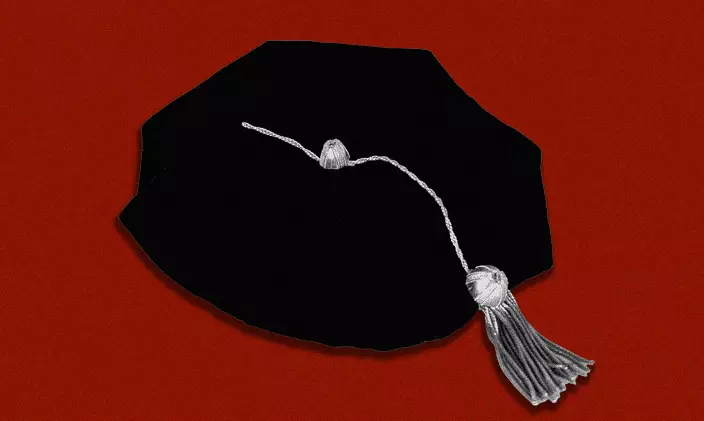
This article has been vetted by University of Phoenix's editorial advisory committee. Read more about our editorial process.
This article has been reviewed by Hinrich Eylers, PhD, PE, MBA, Vice Provost for Academic Operations and Doctoral Studies
This article was updated on January 2, 2024.
At a glance
- A doctoral degree , whether a PhD or a practitioner doctorate, is the highest academic achievement one can pursue at a university.
- A doctoral student is an individual who’s been accepted into a doctoral program and is working through classes and coursework. A doctoral candidate has completed the coursework portion of a doctoral program and is focused on writing a dissertation or equivalent project.
- Other doctoral programs include MDs, JDs, ODs, DCs and AudDs. Notably, many of these programs do not include a dissertation.
- Explore online doctoral programs in business, nursing, education and healthcare at University of Phoenix.
Many people who earn a doctoral degree will, at some point, be both a doctoral student and doctoral candidate. While these roles may seem mysterious from outside the (real or virtual) halls of academia, the distinction is fairly simple.
Before we cover the distinction, however, let’s get on the same page about doctoral degrees.
What is a doctoral degree?
In academia, one degree sits at the very top: the doctoral degree. Also referred to as a doctorate, a doctoral degree is the most advanced educational credential you can earn. Though some fields of study (like journalism) don’t have a doctoral degree, most typical academic fields do, as do the fields of health, medicine, law, education and business.
Doctoral programs can lead to a PhD in a variety of fields, such as literature, philosophy and history, or a practitioner doctorate in a field like business, health administration, nursing or education. Doctoral degrees involve years of intensive study, and many require a book-length dissertation. However, practitioner doctorates have different requirements and may not entail a dissertation.
Learn more about online doctoral degrees at UOPX!
Requirements of a doctoral program
Before graduate school, you must complete years of university courses, typically two degrees, before a program will consider admitting you. However, some programs have more lenient requirements than others.
Doctoral programs tend to be intentionally difficult and rigorous courses of study. As mentioned, there are several educational levels before a doctoral degree that both students and candidates will need to pass.
The requirements for a doctoral student include:
- Prerequisite degrees: Doctoral programs usually require that students obtain a bachelor’s and a master’s degree first.
- Required coursework: Each program requires different courses, but most will be in the student’s area of study, with some focused on adjacent or complementary subjects. Additionally, foundational coursework prepares students to learn about the research process.
- Qualifying exams: Typically, students must pass qualifying exams to enter doctoral programs, but not all programs require entrance exams.
If a dissertation is part of the doctoral program, the doctoral candidate must:
- Select a dissertation advisor or committee: During your time as a doctoral student, you will come into contact with many instructors. You will typically only interact with the instructors who are your dissertation advisor or on your dissertation committee. The committee is the audience for the doctoral candidate and ensures the candidate demonstrates command of the literature and methodologies relative to their field.
- Choose your dissertation topic: This is a pivotal point in your journey to earning a PhD or doctorate. Many programs ask for a general topic as part of your initial application. Your advisors will help you to create a specific and unique dissertation topic that will fuel your work over the next several years.
- Write the dissertation: Your dissertation or thesis will normally take a couple of years to write and will be a book-length culmination of your learning and research.
- Defend your dissertation or thesis: After you submit your final draft to your dissertation committee, you will need to orally present your work to the committee, answer questions and defend your work.
The requirements for a doctorate take many years to complete. While some people complete doctoral degrees in three to five years, others take seven to 10 years. The time span depends on your specific area of study, whether you take classes on a full-time or part-time schedule and how long it takes to complete your dissertation. This also includes your level of focus and intent.
read similar articles
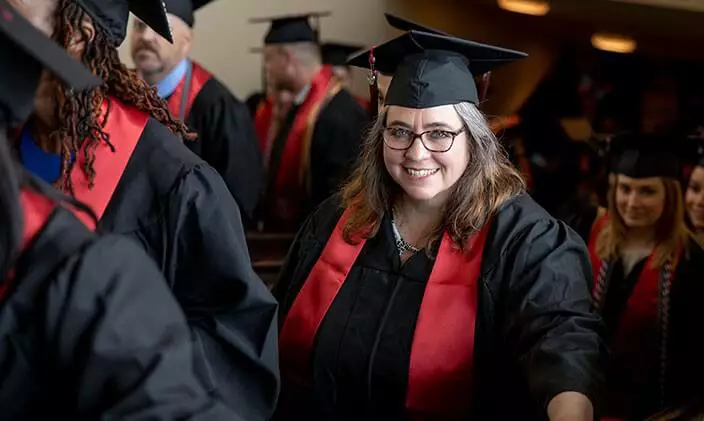
A guide to all 4 college degree levels
Doctoral candidate vs. doctoral student.
If you are interested in earning your doctorate, then it is important to understand the difference between being a doctoral candidate and a doctoral student.
What is a doctoral student?
A doctoral student is a person currently enrolled in a doctoral program at a university. Being a doctoral student involves completing a certain number of credits and coursework in an area of study and completing and passing several exams.
After students pass the qualifying exams (if the program requires it) and successfully complete required coursework, they become doctoral candidates.
What is a doctoral candidate?
A doctoral candidate leaves behind the structured learning schedule of a student. No longer does the candidate attend regular classes or take exams. Instead, they embark on a self-guided schedule for writing a dissertation. This culminates their studies and is tailored to their unique and individual areas of interest.
Doctoral candidates work closely with the advisors who make up their dissertation committee. The advisors provide guidance and critiques as the candidate writes a book-length dissertation. While the advisors can help along the way, what sets the candidate apart from the student is that, rather than simply learning what others have already discovered, they are conducting and writing about their own original, approved research — and then demonstrating what they’ve learned, as well as how it fits in the broader field of study or can be applied to tangible problems.
The meaning of candidacy in other doctoral programs
A PhD is not the only type of doctoral degree. There are also practitioner or professional doctorates, which may take the specific shape of medical doctorates, optometry doctorates, audiology doctorates, chiropractic doctorates, juris doctorates and others.
Such programs have their own conventions and terminology for various milestones. Some doctoral degrees, such as for law or medicine, focus on mastering the practice of a specific subject and the skills associated with that practice. As a result, terms such as candidate are not used universally among doctoral programs, and many of these programs do not include a dissertation.
PhD vs. practitioner doctorate
A PhD, or Doctor of Philosophy, is a doctoral degree that is focused on expanding and enriching an area of research. A PhD student typically focuses on developing new and original knowledge based on theory.
In contrast, a practitioner doctorate prepares students for leadership roles in their desired profession by applying existing knowledge to solve problems in their field or community. The practitioner doctorate generally involves rigorous curriculum, culminating in a dissertation or applied project that addresses a particular real-world problem.
Requirements of a practitioner doctorate and many practitioner programs
The requirements of a particular practitioner doctorate will vary according to the institution and the field of study. This makes sense when you consider that practitioner doctorates vary from juris doctorates to doctors of physical therapy.
While there may be similar experiences involved in the course of study, such as residencies or internships, the requirements are unique to the specific degree.

3 ways to jump-start your doctoral experience
Doctorates at university of phoenix.
While University of Phoenix (UOPX) does not have PhD programs, we do offer several online doctorates. Students might choose the UOPX programs because classes are flexible and offered online, and because of our unique “ Scholar-Practitioner-Leader model .”
Our doctoral programs are:
- Doctor of Business Administration — Gain the strategic vision and skills to position yourself as a business leader. This program teaches skills such as how to solve organizational problems, design and conduct research studies, introduce innovative business ideas to the industry and more.
- Doctor of Management — This program equips you with critical thinking skills to find creative solutions to complex problems, so you can bring out the best of your leadership skills.
- Doctor of Education — Learn how to use analytical, critical and innovative thinking to improve performance and solve complex problems in education.
- Doctor of Health Administration — If you’re a health professional who is seeking greater responsibility in shaping the future of the health sector, the Doctor of Health Administration can help you get there. You’ll study the challenges inherent to today’s healthcare landscape, including economic fluctuations, burgeoning patient needs and industry-changing legislation.
- Doctor of Nursing Practice — This program is designed for working nurses who require a doctorate for advanced practice or nurses who desire their terminal degree. It does not prepare students for professional certification or state licensure as a nurse or as an advanced practice nurse.

ABOUT THE AUTHOR
Brian Fairbanks is a freelance writer with a background in SEO content creation and blog article development
want to read more like this?

How Individual Online College Courses Can Help You Graduate
University life.
January 26, 2023 • 5 minutes
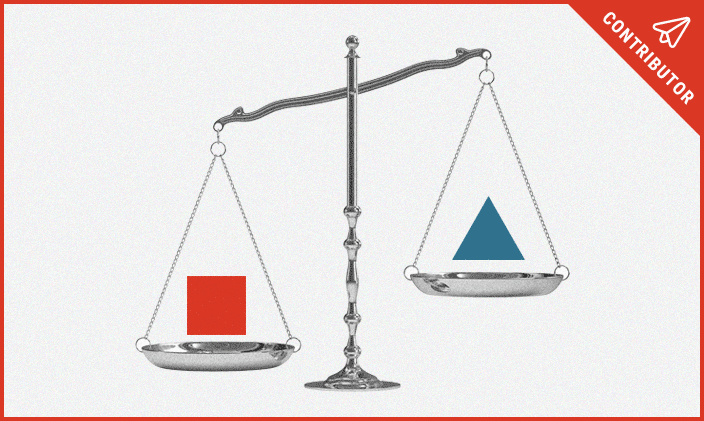
How to Find the Truth in an Information Overload
October 18, 2023 • 6 minutes

Dr. Julie M. Ballaro Shepherds Doctoral Students to Success - UOPX
September 01, 2021 • 4 minute read

Research Voyage
Research Tips and Infromation
What is the Difference Between a PhD Candidate and a PhD Student?
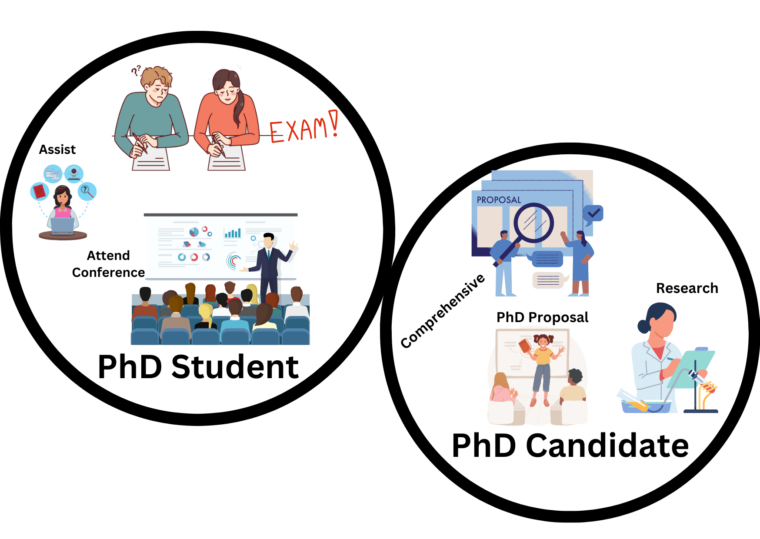
Pursuing a doctoral degree is a significant academic achievement that requires years of dedicated study, research, and intellectual rigour. Within the realm of doctoral studies, the terms ‘PhD candidate’ and ‘PhD student’ are commonly used, often interchangeably. However, a closer examination reveals that there are nuanced differences between these two designations. Understanding these distinctions is crucial for both prospective doctoral students and those seeking to comprehend the various stages of the doctoral journey.
In this article, we delve into the disparity between a PhD candidate and a PhD student, shedding light on the roles, responsibilities, and progression associated with each stage. We explore the specific criteria that differentiate a student from a candidate and the various milestones marking the transition. Additionally, we delve into the responsibilities and expectations that accompany each designation, illuminating the unique experiences and commitments faced by PhD candidates and students.
Furthermore, we acknowledge the variability in terminology across international boundaries, academic institutions, and disciplinary fields, providing insights into how different contexts might influence the usage of these terms. By the end, readers will have a comprehensive understanding of the contrasting aspects between a PhD candidate and a PhD student, facilitating informed conversations and a deeper appreciation for the intricate nature of doctoral education.
Introduction
Who is a phd student, when phd student attains status of phd candidate, variation in terminology.
Pursuing a PhD (Doctor of Philosophy) degree involves conducting original research in a specific field of study, making a significant contribution to knowledge, and demonstrating a high level of expertise. It is the highest academic qualification one can attain and is highly valued in academia, research institutions, and certain industries. A PhD signifies a deep understanding of a subject area, advanced analytical and critical thinking skills, and the ability to conduct independent research.
While the terms “PhD candidate” and “PhD student” are often used interchangeably, there are subtle differences between the two.
A PhD student typically refers to an individual who has been admitted to a doctoral program, actively engaging in coursework and other program requirements. They are in the early stages of their doctoral journey and are working towards completing the necessary academic components of their degree. On the other hand, a PhD candidate is typically someone who has progressed beyond the coursework stage and has advanced to the research phase of their program. They have usually completed comprehensive exams, passed a research proposal defense, and are actively engaged in independent research for their dissertation or thesis.
The purpose of this article is to provide a comprehensive understanding of the distinction between a PhD candidate and a PhD student. By exploring the criteria, milestones, and responsibilities associated with each designation, this article aims to clarify the unique experiences and progression of doctoral students. It also seeks to address the varying terminology used across different contexts and disciplines, enabling readers to grasp the intricacies of the doctoral journey and fostering informed discussions around this topic.
Through this article, readers will gain a comprehensive understanding of the journey from being a PhD student to becoming a PhD candidate and the distinct roles and responsibilities associated with each stage.
A PhD student is an individual who has been admitted to a doctoral program and is actively engaged in pursuing their doctoral studies. They are at the initial stages of their doctoral journey, seeking to expand their knowledge, skills, and expertise in a specific field of study. PhD students play a vital role in academic research communities as they contribute to the generation of new knowledge and the advancement of their discipline.
PhD students are required to complete a set of coursework specific to their field of study. These courses are designed to provide a foundation in the discipline, enhance research skills, and broaden the student’s understanding of relevant theories and methodologies. Coursework may include seminars, advanced classes, and specialized topics. The specific coursework requirements can vary between programs and disciplines.
Example: Imagine a student named Alex who has just been accepted into a doctoral program in psychology. At this stage, Alex is considered a PhD student as they begin taking relevant coursework, attending seminars, and collaborating with faculty members. They are laying the foundation for their research and acquiring the necessary knowledge in their field.
Who is a PhD Candidate?
Advancement from being a PhD student to a PhD candidate typically involves meeting specific requirements set by the doctoral program. These requirements may vary depending on the institution and field of study but often include successful completion of coursework, exams, and other program-specific milestones.
One of the primary requirements for transitioning to a PhD candidate is the successful completion of coursework and exams. PhD students are expected to complete a designated set of courses, which provide a broad understanding of their field and research methodologies. They are also required to pass comprehensive exams, which assess their comprehensive knowledge and understanding of their research area.
As part of the transition to becoming a PhD candidate, students typically prepare and defend a research proposal. The research proposal outlines the scope, objectives, methodology, and significance of the intended research. The proposal defense may involve presenting the proposal to a committee of faculty members, who evaluate its feasibility, rigour, and contribution to the field. Additionally, PhD students often have to pass comprehensive exams, which test their knowledge of their research area and related disciplines.
If you are not familiar with writing PhD proposal and making PhD proposal presentation, then visit my articles on “ How to Write PhD Proposal Presentation to the University ” and ” How to Make a PhD Proposal Presentation to the University Panel” . These articles will guide you through the process of preparation and presentation of PhD proposal to the University panel.
Upon successful completion of the requirements, PhD students are often granted candidacy status. Advancement to candidacy signifies that the student has demonstrated the necessary knowledge, skills, and potential to conduct independent research and contribute to their field. This status allows students to focus more exclusively on their research and dissertation work.
Once students become PhD candidates, there is a shift towards an increased emphasis on independent research. They are expected to dedicate a significant portion of their time and effort to conducting original research, collecting data, analyzing results, and making novel contributions to their field. The focus is primarily on their dissertation or thesis work, which serves as the culmination of their doctoral studies.
Example: Let’s consider a PhD student named Alex in the field of computer science. After completing their coursework and passing comprehensive exams, Alex develops a research proposal outlining their intention to investigate the applications of machine learning in cybersecurity. They present the proposal to a committee of faculty members, who assess the feasibility and potential impact of the research.
Alex successfully defends their research proposal and is granted candidacy status, transitioning from a PhD student to a PhD candidate. With candidacy status, Alex’s focus shifts towards conducting independent research. They spend considerable time collecting and analyzing cybersecurity datasets, developing and refining machine learning algorithms, and testing their effectiveness in detecting and preventing cyber threats.
As a PhD candidate, Alex works closely with their advisor, regularly discussing research progress, seeking guidance, and receiving feedback. They collaborate with other researchers in the field, attend conferences to present their findings and contribute to the scholarly community through publications. The focus is now on producing an original and significant contribution to the field of computer science through their dissertation.
The transition to PhD candidacy marks a critical stage in the doctoral journey, as it signifies the ability to independently drive research and make scholarly contributions. PhD candidates like Alex are immersed in the world of research, expanding knowledge, and pushing the boundaries of their field.
Terminology related to PhD candidates and PhD students can vary internationally and among different academic institutions. In some countries, the terms “PhD candidate” and “PhD student” may be used interchangeably, while in others, there may be specific distinctions. For example, in the United States, “PhD student” is commonly used, while in the United Kingdom, “PhD candidate” is more frequently employed. Additionally, different universities or institutions may have their own terminology preferences, which can create further variation.
Terminology can also vary based on the disciplinary field of study. Different academic disciplines have their own conventions and terminology for referring to individuals pursuing a doctoral degree. For instance, in the sciences, one might encounter terms like “graduate researcher” or “doctoral candidate.” In the humanities and social sciences, the terms “PhD candidate” and “PhD student” are often used. This variation reflects the specific linguistic and cultural norms within different academic domains.
In Canada, for instance, doctoral students are commonly referred to as “PhD candidates,” regardless of their stage in the program. In Australia, “PhD candidate” is the preferred term for those who have completed the required coursework and have advanced to the research phase. In contrast, in the United States, “PhD student” is frequently used to refer to individuals at all stages of their doctoral studies.
Disciplinary variations can also be observed. In engineering, individuals pursuing a doctoral degree are often referred to as “PhD students” or “doctoral students.” In contrast, in the field of education, the term “PhD candidate” is commonly used to denote those who have advanced to the research and dissertation stage.
It is important to note that these examples represent general trends, and there can still be variation within specific institutions and programs. The usage of terminology can evolve over time and may be influenced by regional or institutional preferences.
The distinction between a PhD candidate and a PhD student holds significant importance in the realm of doctoral education.
While these terms are often used interchangeably, they represent different stages and responsibilities within the doctoral journey. A PhD student is in the initial stages of their program, actively engaging in coursework, research, and academic requirements.
On the other hand, a PhD candidate has advanced beyond coursework, passed comprehensive exams, and is focused primarily on independent research and the completion of their dissertation.
Upcoming Events
- Visit the Upcoming International Conferences at Exotic Travel Destinations with Travel Plan
- Visit for Research Internships Worldwide

Recent Posts
- These Institutes Offer Remote Research/Academic Internships
- How to Include Your Journal in the UGC-CARE List? A Guide for Publishers
- Understanding UGC CARE Journals: A Comprehensive Guide
- Top 10 AI-Based Research Paper Abstract Generators
- EditPad Research Title Generator: Is It Helpful to Create a Title for Your Research?
- All Blog Posts
- Research Career
- Research Conference
- Research Internship
- Research Journal
- Research Tools
- Uncategorized
- Research Conferences
- Research Journals
- Research Grants
- Internships
- Research Internships
- Email Templates
- Conferences
- Blog Partners
- Privacy Policy
Copyright © 2024 Research Voyage
Design by ThemesDNA.com


PhD candidate vs student – The REAL difference
Welcome to this comprehensive article on understanding the real difference between a PhD student and a PhD candidate. Both terms denote stages in a doctoral journey, but they imply different responsibilities, expectations, and milestones.
A PhD student is in the initial stages of their doctoral journey, undertaking coursework and preparing for exams. A PhD candidate, having passed these exams, focuses on original research and writing a dissertation.
As someone who is enrolled in a doctoral program, or considering earning a doctorate degree, it’s crucial to comprehend the clear difference between these roles.
We’ll discuss everything from the process of becoming a PhD student to transitioning into a PhD candidate, the completion of coursework, the significance of qualifying exams, and the transition to dissertation research.
Your advisor may not even tell you this!
Our aim is to provide clarity and insight into these significant milestones of the doctoral journey and help you navigate your path to earning a PhD with confidence.
So, let’s dive into the world of doctoral programs and demystify the difference between a PhD student and a PhD candidate.
In a hurry? A typical PhD journey – Student to candidate
Here is a table highlighting the key differences between a candidate and student in a PhD program:
What Is a PhD Student?
A PhD student is someone who has been accepted into a doctoral program and is in the initial stages of their journey towards obtaining a PhD degree. During this phase, the PhD student undertakes courses to develop comprehensive knowledge and skills within their chosen field. These courses often extend for about two years and require maintaining a certain minimum grade.
PhD students also participate in various academic activities such as teaching assignments, seminars, workshops, and initial stages of research.
They are expected to demonstrate high academic performance and the potential to contribute to their area of study.
Moreover, PhD students work on formulating a viable research proposal or topic for their thesis or dissertation.
Before becoming a PhD candidate, they are required to pass qualifying or comprehensive exams that test their understanding and the depth of knowledge in their field. The stress and effort involved in this phase serve as the transition point to becoming a PhD candidate.
What Is a PhD Candidate?
A PhD candidate is an individual who has advanced beyond the initial stages of a doctoral program and demonstrated their potential to contribute original and high-quality research to their field. The transition from a PhD student to a PhD candidate typically occurs after the completion of coursework and successful passing of comprehensive or qualifying exams.
These exams are rigorous evaluations that test the candidate’s depth of knowledge, research skills, and capacity to articulate and defend their ideas. They may include written and oral components, and in some cases, the submission of a research proposal or the first chapter of a thesis.
As a PhD candidate, the focus shifts from coursework to independent research, specifically the production of a doctoral dissertation or thesis. This work is intended to be a substantial and original contribution to their field of study. PhD candidates also commonly engage in teaching or other professional activities within their academic communities.

PhD Candidate vs Student: What Are the Differences?
A PhD student and a PhD candidate are different stages in the journey towards earning a doctorate degree. As a PhD student, you’re at the start of this journey, having been accepted into a program and undertaking courses to gain in-depth knowledge of your field.
This stage typically involves a blend of coursework, research, and teaching responsibilities, with the primary goal being to complete required courses and maintain a satisfactory grade average.
Transition to the status of a PhD candidate occurs upon completing coursework and successfully passing a comprehensive or qualifying examination.
This examination assesses the depth of your knowledge, your research abilities, and your capacity to contribute original ideas to your field. The transition from student to candidate signifies that you have demonstrated a readiness to produce independent, high-quality research.
As a PhD candidate, you are now focused on research and working towards your dissertation or thesis, the original contribution to your field that you’ve proven capable of providing.
The process concludes once you have successfully defended your thesis to a committee. In summary, a PhD student is preparing for their academic journey, while a PhD candidate is actively navigating it.
Is becoming a PhD candidate a big deal?
Becoming a PhD candidate is a big deal! Pursuing a PhD is a long and challenging journey that requires discipline, dedication and hard work.
A PhD candidate must conduct original research, publish papers in academic journals, and defend their dissertation before a panel of experts. It takes years of commitment and sacrifice to earn a PhD, but the rewards are often worth it.
As a PhD holder, one gains prestige, respect, and career opportunities that would otherwise not be available.
PhD graduates can become professors, researchers, consultants, industry leaders, and entrepreneurs, among other things.
Pursuing a PhD is more than just a personal achievement. It contributes to the advancement of knowledge in one’s field, and it often translates into tangible benefits for society, such as new technologies, products, and services.

Wrapping up – stages of doctoral and PhD candidacy
Understanding the journey from being a doctoral student to becoming a PhD candidate is crucial in successfully navigating a doctoral program.
The clear differences lie in the progression of responsibilities, academic milestones, and demonstrated ability to contribute original research in your field. Initially, as a PhD student, you are enrolled in a doctoral program, completing required coursework and prepping for comprehensive exams.
The transformation into a PhD candidate happens post the successful passing of these exams, marking your readiness for independent research and dissertation writing. Earning a doctorate isn’t just about personal achievement, but also about societal contributions through the advancement of knowledge.
Remember, becoming a PhD candidate is indeed a big deal, a testament to dedication, hard work and intellectual prowess. Your journey is unique and filled with learning that goes beyond books, setting you on a path of lifelong intellectual exploration and impact.

Dr Andrew Stapleton has a Masters and PhD in Chemistry from the UK and Australia. He has many years of research experience and has worked as a Postdoctoral Fellow and Associate at a number of Universities. Although having secured funding for his own research, he left academia to help others with his YouTube channel all about the inner workings of academia and how to make it work for you.
Thank you for visiting Academia Insider.
We are here to help you navigate Academia as painlessly as possible. We are supported by our readers and by visiting you are helping us earn a small amount through ads and affiliate revenue - Thank you!

2024 © Academia Insider


PhD Student vs. PhD Candidate

How I use gentle, digital nudges to stay current in the post-exams world
July 6, 2017 | Alison L.
Do you know the difference between a PhD student and a Ph.D. candidate?
A candidate is someone who has fulfilled all the requirements for the degree except the dissertation.
I’m a historian (see my earlier post about being a humanist at MIT ), so my path to candidacy differs a bit from other doctoral tracks at MIT. But whatever the discipline, the transition from student to candidate is an arduous process.
My department’s requirements involved: completing two years of coursework; demonstrating proficiency in a research language other than English; submitting at least one grant application; writing and revising a dissertation proposal that the dissertation committee must approve; and, most grueling of all, passing qualifying exams.
I became a candidate on November 24, 2015, after a weeklong examination period that involved three separate seven-hour written exam and a two-hour oral examination during which our committee members can grill us on anything they please.
I felt prepared for the written exams, which were open note, because I’d done nothing but read, take notes, and revise for the four months leading up to the exams.
But I lost sleep (at a time when I really couldn’t afford to be losing sleep) fretting about the oral exam. I shouldn’t have worried as much as I did. While there were a couple moments of panic—like when I blanked on the two ecozones separated by Wallace’s line—I survived “quals.”
So, what do you do once you become a candidate?
First, you take a break. I gave myself a little over a month to relax. I worked on lower-stakes projects, read fiction, attended departmental lectures, caught up with colleagues. I enjoyed the holidays at home in Chicago.
But once the New Year rolled around, a new sense of panic set in. Without the motivating pressure of exams to keep me working at a breakneck pace, how would I ever stay up-to-date in my fields? This anxiety, I’m willing to guess, is one shared by almost all academics.
While I’m actually more interested in how others have handled this pressure—comment away please!—I wanted to share a few tips I’ve picked up for keeping au courant .
1. Sign up for eTOCs That acronym stands for email Table of Contents alerts. Most journal publishers have a system that allows you to receive emails detailing the contents of their most recent releases. Sign up for a few of these and you’ll receive quarterly reminders that make it easier to stay on top of developments in the literature.
For some fields, it might not be necessary to read entire journals. In that case, pick some keywords and set up a bunch of Google Scholar alerts. Talk to your advisors and peers to see what works best in your discipline.
2. Make social media work for you Choose one social media platform and turn it into a research tool. My platform of choice is Twitter. You might be surprised by the number of scholars and professional associations that use social media. I rarely tweet myself, but I check Twitter at least once each day to find links to interesting articles, news about gatherings in my field, and to follow the work of scholars I admire. In addition to yielding worthwhile information, my Twitter sessions have the added benefit of tricking my brain into thinking it’s taking a break from work.
If you’re wondering how to curate your Twitter feed, first take a look at papers you’ve written for classes or published. See if the scholars that you cite in your own work are on Twitter and go from there. This is the most casual form of networking, but especially for introverts (like myself) these social media e-introductions facilitate in-person conference meetings, which can lead to future collaborations.
3. Listservs make life easier Most people at MIT know about the free food listserv. I’m not a member because I don’t need that kind of temptation in my life. Still, I’m a big fan of using listservs to join intellectual communities. In addition to the handful of MIT-based lists that tell me about upcoming lectures and workshops here on campus, I receive emails from communities at other Cambridge- and Boston-based schools. I’m also on a few listservs for universities in other cities. Even if I’m never able to attend those events, I know who is working on what where. If academia is about staying in the know, listservs help you do that.
I’ve written this from the perspective of a PhD candidate who needed gentle, digital nudges to stay current in the post-exams world, but I hope they prove useful for students, candidates, and beyond. Now comes the important question: What are your strategies for staying up-to-date?
Share this post:
This site uses cookies to give you the best possible experience. By browsing our website, you agree to our use of cookies.
If you require further information, please visit the Privacy Policy page.
Want to Get your Dissertation Accepted?
Discover how we've helped doctoral students complete their dissertations and advance their academic careers!
Join 200+ Graduated Students

Get Your Dissertation Accepted On Your Next Submission
Get customized coaching for:.
- Crafting your proposal,
- Collecting and analyzing your data, or
- Preparing your defense.
Trapped in dissertation revisions?
Phd candidate vs student, published by steve tippins on may 19, 2020 may 19, 2020.
Last Updated on: 2nd February 2024, 03:03 am
You make the transition from PhD student to PhD candidate after you complete all your coursework and your comprehensive exams (if required). A PhD candidate’s sole task is to conduct their research and write their dissertation.
In other words, a PhD student is still completing their coursework. They could be on the first day of their PhD program. A PhD candidate has completed all of the requirements for their degree except their dissertation (yes, that’s the infamous “ all but dissertation ” status).
PhD candidacy means you’re a PhD in training. Now you’re ready to spread your wings a little–with some guidance.
Your time as a PhD candidate is your chance to demonstrate that you are ready to be an independent scholar. It’s also your chance to screw up and have that be okay–to have support. Your committee will help you. Since it’s the first time you’ll go through the process of creating and performing a study on your own, there’s no reason to believe you’ll be perfect at it. That’s why the process is designed so that your committee can give you guidance.
But besides the simple definition above, what are the implications of being a PhD candidate vs student? Turns out, there are many important differences. Without keeping these in mind when you become a PhD candidate, it’s easy to spin out and get off track and not understand why.
PhD Candidate vs Student: What Are the Differences?

While “PhD Student” and “PhD Candidate” are both steps on the journey to getting a PhD, there are significant differences between them. Here are some of the differences between PhD candidate vs student.
Lack of Structure
When you’re doing coursework, there is structure; there are assignments and deadlines. Of course, in graduate coursework teachers aren’t on top of you to turn in assignments like they would be in an undergraduate program. However, there is a deliverable (final project, test, etc) that you have to complete each quarter. You have things to complete by a certain time in order to move forward.
Once you become a candidate, there’s no syllabus and there are no due dates. It’s completely up to you to move forward in the process.
Some people find it hard to make the transition to the lack of structure that comes with being a PhD candidate.
Academic Writing
Academic writing skills become really important when writing your dissertation –more important even than they were during the coursework phase of graduate school. Academic writing is essentially a new language, with very specific meanings and requirements.

For example, you can’t just say “people believe x or y,” you have to say who they are and how you know that, giving citations to back it up. Many words (like “significant”) have very specific meanings and can’t be used the way you might use them in speech.
As a PhD student, your professors should be teaching this language to you, so that as a PhD candidate, it will come as second nature.
How Many People Do You Have to Keep Happy?
Here’s another difference between being a PhD student vs PhD candidate: as a PhD candidate, you reduce the number of people that you have to keep happy.
As a student, you have to keep in mind the requirements from each professor teaching your classes, as well as matriculation requirements from the department, preferences and advice given by your advisor, and even the research interests of the people for whom you’re writing papers.
Over 50% of doctoral candidates don’t finish their dissertations.
Once you become a candidate, it’s just your committee that you have to keep happy, meaning that those are the people who will hold you accountable and outline the requirements for completion of the degree. For that reason, you’ll want to choose your committee members with care.
Hopefully, by the time you need to choose your committee, you’ll have encountered professors who are intrigued by your research interests and with whom you feel personally and professionally compatible.
Freedom to Choose

When you become a PhD candidate, you get to work on what you want to work on. You can pursue the topic that interests you instead of whatever goes with the course you’re in. It’s a time to really apply all those skills you were accumulating in the classes. For example, the statistical procedures you learned in stats classes and theories you learned in the courses for your discipline.
This is the stage of culmination, when everything you’ve learned becomes not the goal, but the foundation for your own body of work. It’s one of the exhilarating (and sometimes intimidating) parts of being a PhD candidate vs a student.
Expectations and Support
Faculty often use the “go wander in the woods” approach for PhD candidates. It’s essentially like hearing, “Go find things and come back to me when you’ve got something.” They’ll usually tell you when it’s not enough, but they might not give you much direction about what they’re looking for beyond that.
The reason for this is to encourage independent scholarship. They want you to have the opportunity to build your own case for why and how this topic should be studied. But this first foray into academic independence can be quite a challenge.
When they tell you to “go wander in the woods,” they’re not even telling you what kind of tree to look for. Sometimes you get specific directions, but sometimes you get vague answers like “go look for more.” This can be frustrating. Many clients come to me because they need more direction, which is understandable.

In your coursework, you were often given studies to read or asked to find studies on particular topics that relate to the course topic. Dissertation research is more nebulous. Your committee members want you to decide which directions to go in and which kinds of studies best relate to your research questions.
They won’t be asking you for the “right answer.” They’ll be asking you, “Why? Justify what you did or plan to do.”
Here’s another difference between PhD candidate vs student: a PhD candidate can put “PhD(c)” after their name, indicating that they have achieved status as a PhD candidate. However, I suggest using caution with this designation. The APA has expressed concern that its use may be misleading to the general public and cause people to believe you have a PhD.
PhD Candidate vs Student: An Interview With a PhD(c)

Did you notice a change in how professors viewed you, once you moved from “student” to “candidate”?
Yes. It actually happened during my comprehensive exams. Before that, when I had been asked a question, the professor already knew the answer and was asking to see if I knew also. In my comprehensive exams, I had become the expert and my committee members were actually asking questions out of interest.
We were all pieces of a puzzle at that point. Instead of them saying, “tell me about John Dewy’s influence on education in the 1920s,” they asked, “How do you think Dewey influenced the school system’s openness to parental involvement in schools?” The professor who asked that was genuinely interested, because she was an expert in educational history but had not specifically studied parent involvement in schools, as I had.
That moment represented a big shift for me; it meant that as a PhD candidate, I had to then take responsibility for my own learning, because nobody knew as much as I knew about that particular thing.
It’s exhilarating on one hand, because you suddenly realize you’re the expert. On the other hand, it’s scary because we’re used to somebody else knowing the answer, being able to correct us if we’re wrong.
A Narrowing of Scope

It sounds like your topic was centered on something very particular, so maybe not a lot of other people have studied what you want to study?
Yes, that’s true. When you go through a PhD program your research area is pretty narrow. You start out with a general interest in something, but as you go through your classes, specific areas start to stand out.
I started out with an interest in egalitarianism in public education, but my own past experience combined with some seminal texts to direct me toward parent involvement in schools, specifically. Some books and articles showed me that how schools treat parents can be an indicator of egalitarianism, maybe a clearer one than any rhetoric about the students.
So, there’s this winnowing effect, as you move forward. Your professors love to watch this, too. Especially in the smaller, seminar classes, they seem to be waiting to see what makes your heart beat faster.

Speaking of your heart beating faster, is one distinction of the candidacy phase to have more passion about the work you’re doing?
I think that’s ideal, for sure. It doesn’t always happen, because some professors are really after students who will jump onto their research platform, because they can piggyback on the students’ research to get more publications. Good committee chairs, though, will want you to find your own path toward something you can happily spend a lifetime studying.

I suspect that one of the reasons people don’t finish their dissertations is because they weren’t really passionate about the topic in the first place. It’s only one possible reason, but it should give a doctoral student pause.
It’s really hard to finish a PhD, so you want to knock down any barriers to finishing. Being passionate about the topic will keep you going when things feel onerous. It’s like marrying someone with a sense of humor — even when you’re not getting along very well, there’s something you can always appreciate about your spouse.
Imposter Syndrome

What about “ imposter syndrome ”? Does that come into play when you become a candidate?
It sure did for me! To be one of the only people who’s an expert in that field feels like a huge responsibility because people are depending on you. Your research has to be accurate because people will be making policies based on your conclusions.
Even with good intentions, your conclusions can be erroneous, and there are plenty of historical examples of policies being made on the basis of erroneous conclusions. The consequences can be enormous. And that’s all on you!
So then the questions become, “Am I really up to this?” “Who am I to drive policy?” “I’m just a fallible human being, so why would (or should) anyone listen to me?” Especially right after comps, I was thinking, “How could I be the expert? Nothing really has changed about me; I’m still the same person. Yesterday, I was a student, but today I’m an expert?”

My observation is that this happens with women more than men, probably because women in authority positions are more often questioned than are men. But even for men, this seemingly sudden transformation can make you worry that you’re not qualified for the responsibility you’re being given.
The thing is, It’s not really as sudden as it seems. You’ve been studying something for, say, four years, so you have a claim to expertise. And you’ve been narrowing your interests all along the way, so you’ve been slowly building up your expertise.
Besides, in many good schools, you get warned a lot about how easy it is to make a mistake in research and how easy it is to make false conclusions. They beat that into you so much that it can become a constant doubt.
In most primary and secondary schools, and sometimes even in college, they teach you to sit down, shut up, and learn something. For people to suddenly be saying, “tell me what you think,” can be challenging. I suspect that that’s another major reason people who finish their coursework don’t complete their dissertation: they’re not sufficiently prepared for this shift in roles.
Suggestions for PhD Candidates

Having been through this shift yourself, do you have any advice for students in this stage of their process?
Mostly, I think it’s a matter of taking personal responsibility and seeing yourself in a new light. It helps me to consider this process as a transformation — like a caterpillar into a butterfly. The “student” stage is the caterpillar stage, where you’re eating the milkweed, the knowledge, to nourish you.
Then there comes a time when you’ve got to stop being a consumer and transform into a real researcher. That’s like the metamorphosis stage when the caterpillar is in the chrysalis, melting down. (And I have had plenty of meltdowns myself in this stage!) That’s when you’re on your own, writing the dissertation.
That chrysalis stage is a real slog. You try as hard as you can, and your proposal still gets rejected — twice. Or the IRB wants you to structure the study differently, after your committee has already approved it. Or you can’t get enough participants for your quantitative study or enough data for your qualitative study — whatever. It’s the biggest challenge of most people’s life!

But if you stick with it, you actually do get this huge reward. As a butterfly, or a PhD, you bring something unique to the world. You have an important role in society that can potentially change the course of history — even if you don’t envision that in the beginning.
And that’s why the committee makes the process arduous. They want to be sure you’re great at what you do, because there is potentially an awful lot riding on your shoulders. I’m actually grateful for the rigor they demand. I want to feel ready for the role I’m taking.
Ultimately, candidacy is time in the chrysalis. It’s a time of transformation, built on one’s time as a student. It’s a time in the dark and alone, which makes it challenging, for sure. But I trust I’ll eventually emerge strong enough to spread my wings.
Steve Tippins
Steve Tippins, PhD, has thrived in academia for over thirty years. He continues to love teaching in addition to coaching recent PhD graduates as well as students writing their dissertations. Learn more about his dissertation coaching and career coaching services. Book a Free Consultation with Steve Tippins
Related Posts

Dissertation
Dissertation memes.
Sometimes you can’t dissertate anymore and you just need to meme. Don’t worry, I’ve got you. Here are some of my favorite dissertation memes that I’ve seen lately. My Favorite Dissertation Memes For when you Read more…

Surviving Post Dissertation Stress Disorder
The process of earning a doctorate can be long and stressful – and for some people, it can even be traumatic. This may be hard for those who haven’t been through a doctoral program to Read more…

PhD by Publication
PhD by publication, also known as “PhD by portfolio” or “PhD by published works,” is a relatively new route to completing your dissertation requirements for your doctoral degree. In the traditional dissertation route, you have Read more…

- Call: +32 485 729 359
- Email: EDAMBA EXECUTIVE SECRETARY

PhD students and PhD candidates: Know the Difference
Phd students and phd candidates: know the difference feb 20, 2023.
Who is a PhD Student?
A PhD student refers to an individual who has registered for a doctoral degree program. These students, often known as learners, may complete their coursework on campus, online, or in both settings. Students must fulfil a minimum number of academic credits and pass prerequisite tests to enroll in a standard PhD program.
Also Read, FIVE THINGS YOU SHOULD KNOW BEFORE YOU START A PHD
Once this phase is completed, the student progresses to the dissertation phase, which involves research, writing, and defense.
The distinction between a PhD student and a PhD candidate is that the former is still undertaking coursework and has not yet commenced the dissertation process or passed the qualifying exams, although they may be in the process of doing so.
PhD students' education is defined by a predetermined structure, which also sets forth their schedules.
Who is a PhD Candidate?
A person who has finished all the necessary coursework and passed their qualifying tests is considered a PhD candidate. Once this goal is met, the individual gains the unofficial status of all but the dissertation (ABD).
In general, PhD students eagerly anticipate the transition from PhD student to PhD candidate since it will provide them with the opportunity to focus on their original research and start writing their dissertation with the help of their committee advisors.
Know more about Dissertation and Thesis and what are the major differences between these two ,
PhD student vs Candidates: What Are the Main Differences?
The main distinction between a PhD candidate and a PhD student is that as a student, one is still engaged in course-related activities such as attending classes, writing tests and exams, and completing assignments. On the other hand, becoming a PhD candidate puts you one step closer to earning a doctoral degree and adding the title PhD to your name after passing the tests and writing your thesis . It is important to note that you have to be a student before you become a candidate .
While the differences between being a Ph.D. student and a Ph.D. candidate may appear slight, they carry a lot of weight. Transitioning to a Ph.D. candidate can feel like stepping into a new realm, with new demands and expectations. Despite having completed their coursework, many Ph.D. candidates choose to take self-directed study courses with faculty members whose research aligns with their own, as it can help guide their own research and even influence their dissertation.
If you're part of the PhD community or considering pursuing a doctorate degree, it's important to understand the distinction between being a PhD candidate and a PhD student. Knowing where you stand in your academic journey can help you make informed decisions and set realistic expectations. Keep learning and growing as a PhD researcher , and remember to seek guidance and support from your peers and advisors along the way.
Read more about the EDAMBA PhD Students Forum
Read more about the EDAMBA Summer Research Academy
EDAMBA aims to achieve its mission through three pillars of activity: 1. The Annual Meeting 2. The Summer Research Academy 3. The EDAMBA-EIASM Consortium of Doctoral Supervision
Edamba engages in global collaboration across networks 1. european code of practice 2. equal 3. aacsb, enquiry form.
- 7 Dissertation Writing Tips You Definitely Need to Know
toughdecisions.net
make your dissertation writing a breeze
Phd candidate vs student: explaining the difference.
When looking to finish a doctorate, you will often come across 2 similar terms: “PhD candidate” and “PhD student.” To many people, these terms represent the same thing. However, academics and those who have passed through a doctorate program understand that there is a major difference between both terms.
As a fresh or aspiring PhD student, you must understand the difference between a doctoral student and a doctoral candidate. This article will seek to explain the PhD candidate meaning and explore the definitions of what it means to be a candidate and a student.
PhD student vs candidate
A PhD student is currently enrolled in a PhD program. The learning style for these students is hybrid, meaning that a student can learn either online, on-site, or both. Students who are enrolled in this type of program are often required to complete certain course credit loads and pass exams. The program involves a ton of research, dissertation work, academic writing, and defense.
A PhD candidate, on the other hand, is someone who has done all but completed and submitted a dissertation. It is the transition and progression phase from studentship to candidateship. This title or tag is earned when a student completes all coursework and passes all examinations required by the university. Having explained this, the highlight of their variance lies in the completion of the required coursework.
Distinctions between a PhD candidate vs PhD student
To better understand the differences between these two groups of people, their variances will be highlighted and explained below.
A common question often asked is: do PhD students take classes? The obvious answer to this is yes, they do. The structure of assignments, deadlines and coursework differs for a PhD student and a candidate. There is a lack of structure for a PhD candidate. You are free from following deadlines or syllabi. The progress of your dissertation is completely at your pace. Whereas, as a PhD student, you are guided by deadlines and an academic structure that you must meet to complete your doctoral program.
- Academic writing
The amount of academic writing required of you as a PhD candidate would be far greater than that required of you as a student. Remember that your dissertation alone carries the bulk of your candidateship, and this consists of about three hundred pages’ worth of research work.
- Academic circle
Your academic circle reduces when you become a PhD candidate. The number of people you will need to academically communicate with will also decrease. The reason for this is that as a student, you must meet all of your professors’, departments, colleges, and advisors’ requirements. But, as a candidate, your academic circle revolves around your committee.
As a candidate, you have the freedom to decide your topic, theme, and research style. It is a time for you to implement and showcase the practical and theoretical processes that you learned as a student. A PhD student does not have this privilege; instead, all topics are chosen by the professor.
A candidate does not receive as much support as is required, although so much more is expected of them. For instance, a student would be given tasks to work on with the objective in mind. But a candidate would be left to independently find an objective and work towards it.
A PhD candidate can put the PhD title before their names, but a student cannot. However, this practice is not entirely encouraged as it might mislead the public into thinking you already have a doctorate degree.
While the above clearly differentiates between a PhD student and a PhD candidate, there is a minor confusion between a researcher, candidate, and a student in doctoral programs. While the terms PhD candidate and PhD student differ, a doctoral researcher is a term used to describe “all” students who are pursuing PhD degree in any university.

You Might Also Like

30 Hot Dissertation Topics in Education to Research This Year
Dissertation abstract writing: what no one is talking about, guide on how to publish a dissertation & dissertation sections, leave a reply cancel.
Find A Degree

Ph.D. Student vs. Ph.D. Candidate: The Differences
Phd program rankings.
- Fully Funded PhDs in Education
- Doctor of Nursing Education
- Ph.D.: No Application Fees
- No-GRE Online Ph.D. in Psychology
- No-GRE Online Ph.D. Programs
- Fast Online Doctoral (Ph.D. and Ed.D.)
- The Most Affordable Online DBA
- Doctorate in Public Policy/Administration
- Doctor of ABA
- Transitional Doctor of Physical Therapy (DPT)
- Doctorate in Marketing
- ALL Ph.D. Degree Program Rankings
Career Guides
- Acupuncture and Oriental Medicine
- Aerospace Engineering
- Behavioral Health (D.B.H.)
- Chemical Engineering (PhD CE)
- Chemistry (D.Chem.)
- Clinical Nutrition (D.C.N.)
- Speech-Language Pathology (CScD)
- Criminology (D.Crim.)
- Economics (DEc)
- Health Science (D.H.S./D.H.Sci)
- Library Science (D.L.S.)
- Molecular Biology (Phd Mol Biol)
- Occupational Safety and Health (D.O.S.H.)
- Physics (Ph.D. Physics)
- ALL PhD Career Guides
Valuable Resources
- Best Laptops for Ph.D. Students
- Gift Ideas for Ph.D. Students
- Burnout & Chronic Stress
- The Key to Free Grad School
- Ph.D. Guide for International and Domestic Students
- Habits Of Highly Effective Leaders
- Online Doctorate Reputation
- Journals for Ph.D. Students
- Earning a PhD
- Write a Perfect Essay Like a PhD
- Master’s Degree As a Bridge To Ph.D.
- Self-Funding Your PhD
- Importance of Accreditation
- Online Ph.D. Support Groups
- Getting Accepted to an Online Ph.D.
- Common Fears of Ph.D. Students
- Habits of Successful People
- US Doctoral Degrees
- ALL VALUABLE RESOURCES
Frequently Asked Questions
- Why earn a Doctorate Degree?
- What are the Ph.D. Admission Requirements?
- How Much Does a Ph.D. Cost?
- How many years will it take for me to achieve my doctorate degree online?
- Do online doctorate degree programs require campus visits?
- Ph.D. vs. Doctorate
- ALL FREQUENTLY ASKED QUESTIONS
- Highest-Paying Doctoral Degrees
- Famous Ph.D. Theses In History
- Struggles Only a Ph.D. Student Would Understand
- Ph.D. Requiring Residencies
- The World’s Richest Doctors
- Academic Conferences
- Most Popular PhD Degrees
- ALL Ph.D. Highlights
Are you ready to become a Ph.D Candidate? An advanced academic or professional degree, Ph.D. is short for Doctor of Philosophy. It is a postgraduate degree awarded by accredited universities and higher education institutions after completing all of the degree requirements.
A Ph.D. degree or a doctorate or doctoral degree is globally recognized as the highest level of academic degree and presupposes the completion of an original dissertation or research.

A traditional doctorate follows a three- to four-year degree, but some institutions offer opportunities to fast-track the degree, subject to stringent requirements.
After completing your proposal, you need to impress a panel of experts in an oral defense to prove the necessity of your research. When you have defended your thesis successfully, you can move forward with writing your dissertation.
Let’s set the record straight as we define what a Ph.D. student and a Ph.D. candidate is, and find out their similarities and differences! Use these quick links to easily navigate the questions:
Why pursue a Ph.D.?
Will a ph.d. degree give me an advantage career-wise, i am not a professor nor an instructor, should i still get a ph.d., what are the basic requirements for one to become a ph.d. student, who is a ph.d. student, how long does it take for a ph.d. student to qualify as a ph.d. candidate, do i need to write a full dissertation as a ph.d. student, what are the requirements that i need to comply with for me to become a ph.d. candidate, who is a ph.d. candidate, what must i do after qualifying as a ph.d. candidate, can i now include a ph.d. in my credentials, how long does it take to finish my ph.d., i am a working professional. is there a ph.d. program designed for me, can i complete my ph.d. degree fully online.
If you are a working professional who’s in college or a typical college student thinking of advancing your academic credentials, pursuing a Ph.D. may be a wise choice!
Among the many reasons why students pursue a Ph.D. is for long-term degree goals, which ultimately lead to a career in academia. A Ph.D. is considered an essential qualification for anyone who intends to teach in the university as an instructor or professor.
While those who wish to engage in research, throughout your Ph.D., you will be allowed to conduct your research. You can make important discoveries that will bring a positive impact within your field.
Based on the data posted by the McKinsey Global Institute , we face a shortage of scientists in the world. As the global economy moves toward a more innovative approach, demand for Ph.D. degree holders will increase significantly. Most importantly, once you decide to enroll in a Ph.D. program, you will gain unparalleled analytical and research skills that will become your footstool as you move up in your career ladder.
Yes, having a Ph.D. will give you a competitive advantage . Once you complete your Ph.D. degree, you will become part of the rare commodity of people who holds an advanced degree.
The U.S. Census Bureau discloses that in 2019, only 4.5% of the American population completed a doctorate. With these statistics in mind, you will have a more competitive academic credential than 95.5% of the country.
It is worth noting that since the year 2000, this percentage has doubled. Now, it is estimated that 13.1% of American adults have obtained an advanced degree. This is a drastic increase from only 8.6% in 2000, which translates to 4.5 million Ph.D. degree holders in the United States.
Having a doctorate has a significant advantage. Doctorate holders are capable of generating new data and information that fills the gap in the body of knowledge in the field. Being trained professionals who are highly skilled in critical thinking, decision-making, and complex problem-solving are the top three skills that separate a Ph.D. degree holder from other professionals.
The Bureau of Labor and Statistics discloses that Ph.D. degree holders receive higher earnings and lower unemployment rates than bachelor’s or master’s degree holders.

Academia is a glorious field, but the belief that a Ph.D. only prepares you for academia is a myth . Professors and instructors play an equally important role in the lives of their students as they charge towards achieving their academic goals.
If you want to earn tenure as a professor in a top-tier college or university, having a Ph.D. will significantly increase your odds of securing a position. However, even if you are not a member of academia, pursuing a Ph.D. degree is still a great investment that you should seriously consider.
If you have a passion for research, you can choose to become a scholar, if not a professor. Research is central to the pursuit of an advanced degree, especially a Ph.D. Doctorate holders who do not teach in a university or higher education institutions can focus on doing research. Researchers publish peer-reviewed papers that reach students, professors, and fellow researchers who share the same interest in their specific field.
Choosing a research-focused career over a tenured teaching job allows you to pursue intellectual interests outside the academe. With a chance to apply and win research grants, you will have the resources to do extraordinary things in your field.
Admission requirements may differ from one institution to another. Your admission to any of the Ph.D. programs will depend on your academic records, both at the bachelor’s and master’s levels. Most importantly, the admissions officer will evaluate your potential research capabilities.
In the United States, universities and higher academic institutions require that applicants hold an honors degree or a master’s degree equivalent. Aside from this, having high academic standing will increase your chances of getting into the top research institutions in the country.
The admissions office will also assess an applicant’s bachelor’s degree, and graduating at the top of your class will also boost your chances. But some institutions assess applications solely based on your master’s degree academic record.
Funding for your research may also be a deciding factor on your admission. If you depend on study or research grants and loans, you need to have an exceptional academic track record to impress the admission office. But, if you are self-funded, you may have a competitive advantage over other applicants who are dependent on grants.
You also need to find a tenured professor to serve as your advisor while you complete your Ph.D. before your chosen institution may admit you to the program.
Below are the standard requirements for admission:
- Transcript of records of both your undergraduate and graduate degrees
- Resume or curriculum vitae
- Recent Graduate Record Examinations (GRE) or Graduate Management Admission Test (GMAT) scores
- Letters of recommendation from your peers and mentors
- Statement of purpose
After successfully complying with the admission requirements of the Ph.D. program, you are now officially a Ph.D. student. You will begin your academic journey towards completing a three- or four-year research program. Postgraduate academic institutions serve as fertile research environments that breed future scientists and experts in different fields of study.
Ph.D. students are introduced to the world of independent research. Students study under the close supervision of an academic supervisor or advisor who has a tenured position as an associate professor or higher. As Ph.D. students, collaboration with your advisor is central to developing a valuable addition to the pool of literature in a given subject.
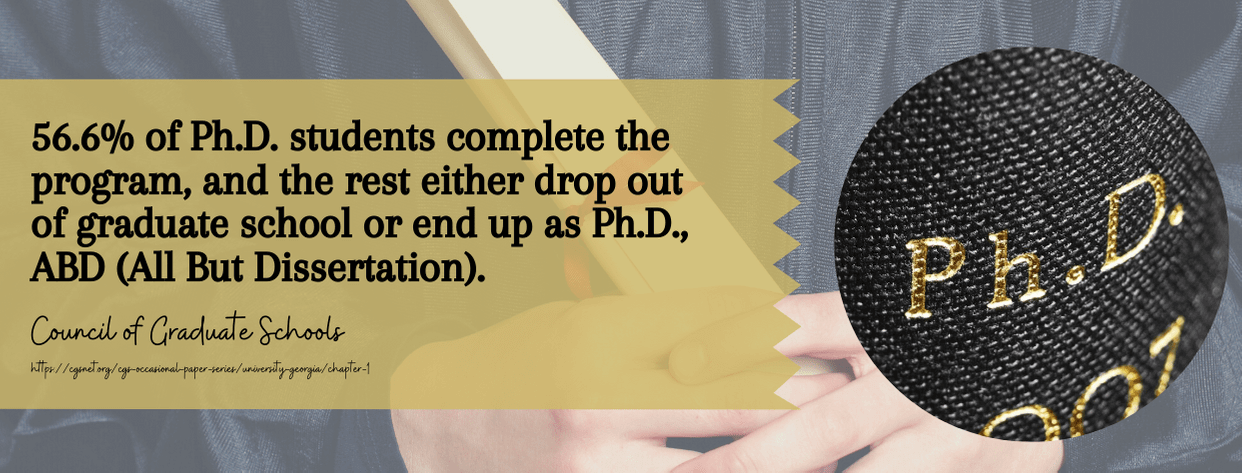
While in graduate school, your main focus is authoring original research, which involves data analysis and evaluation. Depending on your program and department, you may be given the leeway to formulate your area for your research.
However, there are Ph.D. programs that present their students with a selection of research proposals for you to choose from. These proposals are often formulated and peer-reviewed by program supervisors.
You can complete your proposal at a certain term, or year-round, depending on your university or academic institution. Ph.D. students are required to submit a statement or a proposal to be submitted at the end of the term. This will usually take up the first two years of your journey towards your doctor of philosophy degree.
Writing original research is, arguably, the ultimate goal of hundreds of thousands of Ph.D. students. This requirement may vary from one institution to another, or even between subjects.
A doctoral program develops a student’s field of specialty to sharpen their skills to advance their position in their industry. Some doctorate programs require students to attend classes and take examinations, while some require Ph.D. students to handle a teaching load or serve as research assistants.
In the early phases of your doctoral study, you will focus on your chosen field of study. Eventually, you will dive deeper into enhancing your understanding of your specialization to better prepare you for writing your dissertation. At this point, you will start writing your proposal in preparation for your oral defense before a panel of esteemed specialists in your field.
During the final years of graduate school, your dissertation should be your priority. This way, you can move forward with your degree and become a Ph.D. Candidate.
Becoming a Ph.D. candidate from being a Ph.D. student will take time, even more so, your utmost dedication. Before you can be considered a Ph.D. Candidate, you need to submit a minimum of twenty- to thirty-page paper at the end of your first year in graduate school.
Second, you must have completed at least two years of full-time coursework. You will also be asked to show how proficient you are in the research language. In some programs, you need to submit a grant application.
Then, you need to have a draft of your dissertation prospectus. At this point, your prospectus must include your literature review and methodology.
Most importantly, you need to successfully defend your proposal before a committee or panel of experts. Once the committee approves your proposal and you pass the qualifying exams, you can now refer to yourself as a Ph.D. candidate.
After getting approval for your dissertation proposal or prospectus from the panel, you can now refer to yourself as a Ph.D. candidate. This means you get the green light to start writing your dissertation. As a Ph.D. candidate, you can use Ph.D.(c) as part of your credentials.
It signifies that you have now advanced to candidacy. You have reached the final years of your doctoral study, which will be crucial in the trajectory of your academic career.
Aside from having to defend your proposal, some institutions also require Ph.D. candidates to pass a weeklong examination. This often involves three separate written exams that may last for seven hours. You must also pass an oral examination. In this exam, your supervisor, your advisor, and a panel can ask you questions that are related to your discipline.

Now that you are a Ph.D. candidate, you can now start working on your dissertation, but before you begin working, you should take a well-deserved rest.
Having reached your candidacy means you have finished your doctoral studies and can now focus on your research. Writing a research paper entails that you are knowledgeable in your chosen subject.
Reading related literature will better equip you in identifying the gaps in the literature. This way, you may be able to add new knowledge to the subject and through testing your hypothesis and gathering relevant data for your research. Data collection is one of the most critical parts of research, and the viability of your study depends on it.
Moving forward, the data you have collected needs to be processed or analyzed for you to draw up a conclusion. The entire process of writing your dissertation is tedious, so you need patience, dedication, and a passion for research.
As a Ph.D. candidate, you can now use a Ph.D.(c) as part of your credentials. It signifies that you have completed all of your coursework and have now advanced to candidacy.
The (c) means you are currently working on your dissertation. However, including this title in your credentials is inappropriate, even wrong. This designation is very often misused that it has become common among candidates.
First, because a candidacy does not equate to a degree, it is not a credential or a status that is awarded by any university, college, or higher education institution. Also, you can be a candidate for a considerably long time. Unfortunately, some Ph.D. candidates never comply with the dissertation requirement and progress to earning their Ph.D. degree.
In the world of postgraduate studies, they are called Ph.D., ABD, or “all but dissertation.” Unfortunately, according to the Council of Graduate Schools , 56.6% of Ph.D. students complete the program, and the rest either drop out of graduate school or end up as Ph.D., ABD.
The answer to this will depend on the path or subject you choose.
In 2017, the median completion period for completion of a doctorate program was 5.8 years according to the Survey of Earned Doctorates. Typically, a Ph.D. degree will take four to six years to complete, but several factors may prolong this period.
One factor is your field or discipline. Programs like humanities and arts take more than seven years based on the same survey.
Another factor is your academic background. Applying for a Ph.D. program typically requires that you have already completed your master’s degree. This means more time spent in graduate school.
Yes, there are academic institutions that offer professional doctorate degrees specifically designed to accommodate working professionals.
A professional doctorate is a Ph.D. equivalent that allows experienced professionals who aim to earn a doctorate. You can leverage their industry expertise through gaining an academic degree that translates to credibility, and influence in their field.
Students in the program often bring with them years of practical work experience and expertise in various areas, including information technology, business administration, finance, and education. This background will serve as the primary focus of your doctoral research. You can apply your first-hand experience and knowledge in solving real-world problems.
Similar to a Ph.D. degree, you will learn and develop your research methods, design your proposal, and present your findings through writing your doctoral study.
Yes, you can complete your Doctor of Philosophy degree fully online. Unsurprisingly, many Americans resolve to online education to earn a degree, especially an advanced or professional degree.
In a United Nations Study, the U.S. workforce is made up of 85% males and 67% females who are working beyond 40 hours per week. Individuals with family and other obligations are also usually drawn toward online doctorate programs.

An online Ph.D. program is an attractive offering that more and more working professionals seek. Now, there are at least 205 accredited higher education institutions in the county that offer over 1,000 doctorate programs that can be completed online. Earning your Ph.D. online does not necessarily mean that it will be easy. It can easily be as demanding as the traditional format.
Most importantly, an online doctorate bears the same credibility as the one earned on-campus. It is advised that before you enroll in an online program, you check the accreditation of your college or university. This way, no time, money, or effort will be put to waste.
For additional information, check this out:
- Ph.D.’s That Pay: The 15 Highest-Paying Doctoral Degrees
- Hardest Grad School Interview Questions and Response Tips from Ph.D. Experts
/images/cornell/logo35pt_cornell_white.svg" alt="phd student vs candidate"> Cornell University --> Graduate School
Advancing to doctoral candidacy.
The A exam is also known as the examination for admission to candidacy. This oral exam may include a written component, as determined by your special committee. You can take the exam after completing two registered semesters in your program, but before beginning your seventh semester—unless special permission is obtained from the dean.
Passing the A exam means the graduate faculty believes that you are ready to proceed into the dissertation phase of your degree program.
Some fields may offer a special master’s degree after a doctoral candidate has completed four semesters of registration and either passed the A exam or performed at the level of an A exam. This is a master’s degree awarded to a student who is continuing on for the Ph.D., and is awarded without completion of a thesis.
This question is about education section on resume .
Ph.D. candidate vs. Ph.D. student
The difference between a Ph.D. candidate and a student is important in education, as it helps to understand the level of the person's current educational background. Both are people who are in school, but their exact position varies.
A Ph.D. candidate has completed all coursework and passed qualifying exams. They are now working on completing their dissertation. A student is someone who is enrolled in a doctorate program.
Key Takeaways:

Search for jobs
Related questions for education section on resume, recent job searches.
- Registered nurse jobs Resume Location
- Truck driver jobs Resume Location
- Call center representative jobs Resume Location
- Customer service representative jobs Resume
- Delivery driver jobs Resume Location
- Warehouse worker jobs Resume Location
- Account executive jobs Resume Location
- Sales associate jobs Resume Location
- Licensed practical nurse jobs Resume Location
- Company driver jobs Resume
Jobs Near You

Associate's vs. bachelor's

Residency vs. fellowship

Diploma vs. degree

GED vs. diploma

Bachelor's vs. Master's

- Zippia Answers
- Ph D Candidate Vs Ph D Student

- Remember me Not recommended on shared computers
Forgot your password?
- Questions and Answers
Student vs. Candidate

Asked by Adelaide9216 , March 27, 2017

Adelaide9216
Might be a silly question, but when you reach the Master's level, do you call yourself a "master student" or a "master candidate"? Is there a difference between both of these terms because I've came across both pretty often.
Link to comment
Share on other sites, 8 answers to this question.
- Sort by votes
- Sort by date
Recommended Posts

fuzzylogician
Well some schools have an official "candidacy" status, usually for a PhD, attained once you've reached a certain milestone (defended your proposal, ABD, or similar), so you can say you're a PhD candidate. Other schools don't have that, so you'll be a PhD student throughout. Can't say I've heard of a similar distinction for a Masters, but it might be out there. I honestly don't think it matters one bit what you call yourself. But if your school doesn't have an official distinction, I'd just say Masters student.

I heard that you become a master "candidate" once you have finished all the coursework.
59 minutes ago, Brillantine11 said: I heard that you become a master "candidate" once you have finished all the coursework.
This is not something that will be universal. Some schools advance masters students to candidacy, some don't.
Any school that does will have explicit guidelines for it, and it will (usually) show the date you advanced to candidacy on your transcripts.
Unless you are absolutely sure you are a candidate, don't claim it. The risks of looking like you're claiming a title that you haven't earned far outweighs the benefits of the title.
We've had this discussion here before, and I've mentioned people who use the wrong signifiers in their email signatures (i.e., candidate as a first year doctoral student) and that it makes them look pretentious and like they don't know the system.
I am so glad I asked the question! I wasn't sure. Thank you all for your input and insight!
Both are same but most of the peoples called master student rather then candidate. And this term is well known.

ThousandsHardships
At the school where I did my master's, becoming a candidate means that you're close to graduation and have paid the fee and filled out the paperwork to advance to candidacy. However, being a candidate doesn't really mean much except that you've done part of the paperwork toward graduation and that you're now qualified to go on filing fee status, meaning you can pay a reduced fee and not register for classes (also no research or teaching obligations) for your final term as you put the final touches on your thesis. For this reason, even master's candidates don't often refer to themselves as candidates, simply because doing so doesn't add much in terms of your qualifications.
For PhD students, though, candidacy means much more. It doesn't necessarily mean you're close to graduation. In fact, many PhD candidates are not even close to being done. However, it does mean that they've finished their course work and passed their qualifying exams, which represents a huge step in their research and scholarship. For them, candidacy means that they've gone through the rite of passage and become trusted scholars who can now navigate their research on their own, with minimal guidance. Often, PhD candidates call their status ABD, "all but dissertation." Some students who advance to candidacy but don't finish their degree actually put ABD on their resume as an accomplishment in and of itself. And I've even seen some programs that consider advancement to candidacy as equivalent to another master's degree and allow those students to emerge with a master's degree without a thesis or extra exam.
At my old school, I also heard that international PhD students have a financial benefit for advancing to candidacy. I'm not sure about the details though, as I did both my undergrad and master's within two hours of home.

1 hour ago, ThousandsHardships said: For PhD students, though, candidacy means much more. It doesn't necessarily mean you're close to graduation. In fact, many PhD candidates are not even close to being done. However, it does mean that they've finished their course work and passed their qualifying exams, which represents a huge step in their research and scholarship. For them, candidacy means that they've gone through the rite of passage and become trusted scholars who can now navigate their research on their own, with minimal guidance. Often, PhD candidates call their status ABD, "all but dissertation." Some students who advance to candidacy but don't finish their degree actually put ABD on their resume as an accomplishment in and of itself. And I've even seen some programs that consider advancement to candidacy as equivalent to another master's degree and allow those students to emerge with a master's degree without a thesis or extra exam. At my old school, I also heard that international PhD students have a financial benefit for advancing to candidacy. I'm not sure about the details though, as I did both my undergrad and master's within two hours of home.
Just to add, for many programs, candidacy requires a separate exam that is separate from the qualifying exams. At least in my field, qualifying exams are considered the end of your "probation period". In my department, this happens after the end of your first year, after you have completed 2 research projects and the core classes (but not all of your classes---electives are still taken after quals). Passing quals signifies the end of your "trial period" as a grad student and some of the old fashioned professors will congratulate you on finishing quals by saying "Welcome to the department". So, in this sense, we treat the quals as a "rite of passage" and a transition between a "student" and a "colleague".
To earn candidacy, we need to finish all of the course requirements plus a few other university-level requirements. Our department does not have a candidacy exam, instead, you write a 1 page summary of your plan for the dissertation and then your advisor defends it to you at the next all-faculty meeting. You are not present for this part, it's all about your advisor defending you and your plan. The faculty will then vote on whether to advance you to candidacy. By university rules, all students must reach candidacy after 3 years---if not, they must file a petition for permission to extend this deadline. The idea of candidacy is that you are finished all coursework and while you still have much more research to do, you have a plan in place for those last 2-3 years.
Candidacy is an important milestone because there are many internal and external applications that require you to reach candidacy. For example, some summer programs in my field (i.e. one or more weeks long, meant to develop a particular skill or provide a particular experience) will only take you if you are a candidate. It also helps you get some end-of-grad-career fellowships or awards.
I would say that for my department at least, passing quals is a rite of passage that counts you as a (junior) colleague amongst your faculty and the other grad students, while candidacy signals that you have a clear path towards completion.
At Cambridge, you are a Probationary Student when you arrive for your PhD. Only when your dissertation proposal is blessed by the right committee do you become a Candidate. They make no such distinction in their MPhils (or MSts, for that matter).

Create an account or sign in to comment
You need to be a member in order to leave a comment
Create an account
Sign up for a new account in our community. It's easy!
Already have an account? Sign in here.
- Existing user? Sign In
- Online Users
- All Activity
- My Activity Streams
- Unread Content
- Content I Started
- Results Search
- Post Results
- Leaderboard
- Create New...
Important Information
This website uses cookies to ensure you get the best experience on our website. See our Privacy Policy and Terms of Use
NEET UG 2024 final answer key out at exams.nta.ac.in; calculate probable scores
Candidates will not require any credentials to download the NEET UG 2024 final answer key. The NEET UG 2024 result will be declared on June 14.
NEET Rank & College Predictor
Know your expected NEET rank and admission chances in Medical, Dental & AYUSH colleges with NEET score/rank.

Alivia Mukherjee | June 4, 2024 | 07:41 AM IST
NEW DELHI: The National Testing Agency (NTA) has published the National Eligibility cum Entrance Test (NEET) UG 2024 final answer key today, June 4. Candidates who appeared for the entrance medical exam can download the NEET UG 2024 final answer key by visiting the official website, exams.nta.ac.in/NEET/. The NEET UG 2024 exam was conducted on May 5.
Announcement: Register for India's Biggest Education Expo
Latest: NEET 2024 College Predictor | NEET 2024 Official Final Answer Key
Don't Miss: NEET 2024 Cutoff | Study MBBS Abroad | NEET 2024 Rank Predictor
Recommended: NEET Admission Guidance: Personalised | Study Abroad
The NEET UG 2024 final answer key is available in PDF format. Candidates will not require any credentials to access and download the NEET UG 2024 final answer key. The NEET UG 2024 provisional answer keys along with the OMR sheets, were made available on May 30. The deadline for submitting challenges or objections against the provisional NEET UG 2024 answer key was extended by the NTA from May 31 to June 1. The NEET UG 2024 result will be declared on June 14.
Steps to calculate score using NEET UG 2024 final answer key
Candidates can follow these instructions to calculate the probable score with the help of NEET UG final answer key 2024.
- Add 4 marks for each correct answer.
- Deduct 1 mark for incorrect answers
- No marks to be deducted for questions not attempted
- Add the total marks to get the probable score.
NEET UG Final Answer Key 2024: Steps to download
Candidates can follow these instructions to download the NEET UG 2024 final answer key.
- Visit the official website, exams.nta.ac.in/NEET/.
- On the homepage, click on the NEET UG 2024 final answer key link.
- Your NEET UG final answer key 2024 will be displayed on the screen.
- Tally the answers to calculate probable scores.
- Download and take a printout for future reference.
Follow us for the latest education news on colleges and universities , admission, courses, exams , research, education policies, study abroad and more..
To get in touch, write to us at [email protected] .
BITSAT 2024 session 1 result today at bitsadmission.com; tie breaking policy
BITSAT 2024 Result: Candidates will need their application number, password, and security captcha code, to download the session 1 scorecard.
Featured News
- ‘AIIMS Bhopal is a rising star in medical education’: Director
- Karnataka wants 5% NRI quota in government medical colleges to raise funds; students oppose
- Haryana’s MBBS bond policy a constant source of fear and stress for students
- MBBS students are battling despair and depression in medical colleges
- ‘A routine circus’: To get stipends, PG medical students lobby, move court
- Jammu & Kashmir: Why NEET, JEE candidates flock to private reading rooms to prepare for exams
Latest Education News
Ts tet 2024 answer key out; objection window active at tstet2024.aptonline.

Sri Lanka closes schools as death toll from floods and mudslides rises to 16

NEET Rank Predictor 2024: NTA NEET UG final answer key out; mark vs percentile vs rank

IPU CET Counselling 2024: Rank-wise verification, seat allotment schedule for BA Liberal Arts out
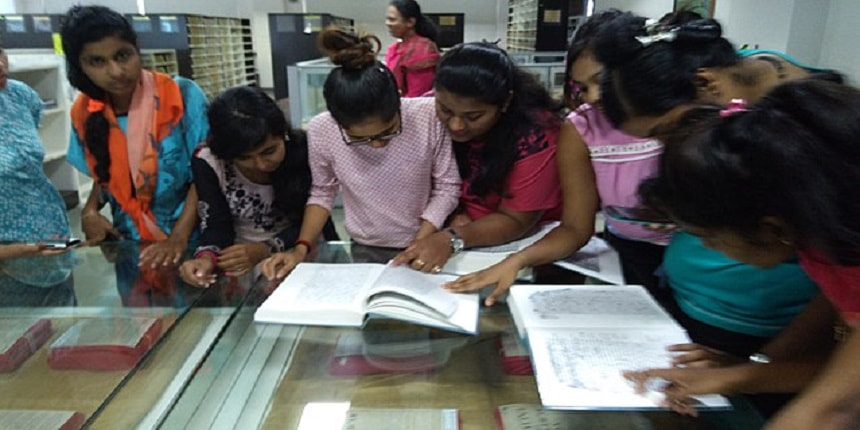
Related News
Neet ug 2024: plea in supreme court seeks fresh exam over paper leak allegations, neet ug results 2024 on june 14 for over 24 lakh candidates; what is 15% aiq seats, neet ug 2024 result: answer key objection facility ends; marks vs rank, neet answer key 2024 (out) live: how to raise objection at exams.nta.ac.in; cutoff, result date updates, download our app.
Start you preparation journey for JEE / NEET for free today with our APP

IMAGES
VIDEO
COMMENTS
A PhD student is someone who has enrolled in a doctorate degree program and is working through their coursework, while a PhD candidate has completed their coursework and is writing their dissertation. Learn about the qualifying exams, the hybrid approach and the advantages of earning a PhD online at GCU.
Learn the key differences between a PhD student and a PhD candidate, including program stage, research progress, advisor relationship, and status. Find out how to become a PhD candidate, how long it takes, and what benefits it offers.
Let's take a closer look at a few of the key differences between PhD students and candidates. 1. Type of Learning. PhD students spend time completing courses and candidacy exams, learning from the pool of knowledge that already exists. They have completed graduate school courses and are now taking classes at the highest level possible.
Learn the difference between a doctoral student and a doctoral candidate, and the steps to earn a doctoral degree. Find out the requirements for PhD and practitioner doctorates, and the meaning of candidacy in different fields.
A PhD student is in the initial stages of their program, actively engaging in coursework, research, and academic requirements. On the other hand, a PhD candidate has advanced beyond coursework, passed comprehensive exams, and is focused primarily on independent research and the completion of their dissertation.
Learn the key differences between a PhD student and a PhD candidate in terms of coursework, exams, research, and dissertation. Find out how to transition from one stage to another and why becoming a PhD candidate is a big deal.
A discussion forum where researchers share their experiences and opinions on the difference between PhD candidate and PhD student in various countries and disciplines. Learn about the academic requirements, exams, salaries, and titles of PhD candidates and students.
Learn the difference between a PhD student and a PhD candidate at MIT, and how to stay current in your field after qualifying exams. Read tips on using email alerts, social media, and listservs to track literature and events.
Learn how to transition from PhD student to PhD candidate and what to expect in the dissertation phase. Find out the key differences in structure, writing, expectations, and support between the two stages of PhD education.
Learn the difference between being a Ph.D. student and a Ph.D. candidate, and the benefits and challenges of each stage. Find out how to become a Ph.D. candidate, how long it lasts, and what to expect during your dissertation.
The main distinction between a PhD candidate and a PhD student is that as a student, one is still engaged in course-related activities such as attending classes, writing tests and exams, and completing assignments. On the other hand, becoming a PhD candidate puts you one step closer to earning a doctoral degree and adding the title PhD to your ...
While the difference between PhD students and PhD candidates may seem small, it is an important distinction. For example, at some universities, PhD students must pass a comprehensive exam or ...
PhD student vs candidate. A PhD student is currently enrolled in a PhD program. The learning style for these students is hybrid, meaning that a student can learn either online, on-site, or both. Students who are enrolled in this type of program are often required to complete certain course credit loads and pass exams. The program involves a ton ...
A Ph.D. degree or a doctorate or doctoral degree is globally recognized as the highest level of academic degree and presupposes the completion of an original dissertation or research. A traditional doctorate follows a three- to four-year degree, but some institutions offer opportunities to fast-track the degree, subject to stringent requirements.
Some fields may offer a special master's degree after a doctoral candidate has completed four semesters of registration and either passed the A exam or performed at the level of an A exam. This is a master's degree awarded to a student who is continuing on for the Ph.D., and is awarded without completion of a thesis.
By Kate Swindlehurst - Mar. 12, 2023. The difference between a Ph.D. candidate and a student is important in education, as it helps to understand the level of the person's current educational background. Both are people who are in school, but their exact position varies. A Ph.D. candidate has completed all coursework and passed qualifying exams.
What is the difference between a PhD Candidate and a PhD Student? A PhD student is someone in a graduate program to get their PhD. I'm sharing the biggest ...
1. PhD students and PhD researchers are not the same thing. A "PhD researcher" is a researcher who has a PhD, while a PhD student is working on a project in order to obtain a PhD (i.e. does not have the degree yet). I agree with you, that the term "PhD student" in English is rather unfortunate - in reality, it is much closer to an ...
I'll mention that at my alma mater, there was in fact a difference between a PhD student and a PhD candidate. A PhD student was anyone enrolled in the doctoral program, but you were only admitted to PhD candidacy after a couple of years of coursework and a qualifying exam. All candidates were students, but not all students were candidates.
After 5 years in grad school I can finally say I'm a PhD candidate. For most people, the difference between PhD student and PhD candidate is minimal, but I know this community understands how important that is as a milestone. I've got less than a year left (due to funding/advisor) to finish up and defend.
For PhD students, though, candidacy means much more. It doesn't necessarily mean you're close to graduation. In fact, many PhD candidates are not even close to being done. However, it does mean that they've finished their course work and passed their qualifying exams, which represents a huge step in their research and scholarship.
I know I become a PhD candidate when I pass my qualifying exams, but that's also when I receive the MA. Thanks in advance! Candidate is when you pass quals, that is correct. You are correct: Student during first half (coursework), candidate after you pass quals/comps/etc.
The first-year milestone in Australia is called 'confirmation of candidacy', and basically proves you have a strong enough concept to carry out the rest of the degree. People in the program before this milestone call themselves 'students', while after passing confirmation you are then a 'PhD candidate'. You retain this status up until you ...
NEW DELHI: The National Testing Agency (NTA) has published the National Eligibility cum Entrance Test (NEET) UG 2024 final answer key today, June 4. Candidates who appeared for the entrance medical exam can download the NEET UG 2024 final answer key by visiting the official website, exams.nta.ac.in/NEET/. The NEET UG 2024 final answer key is ...